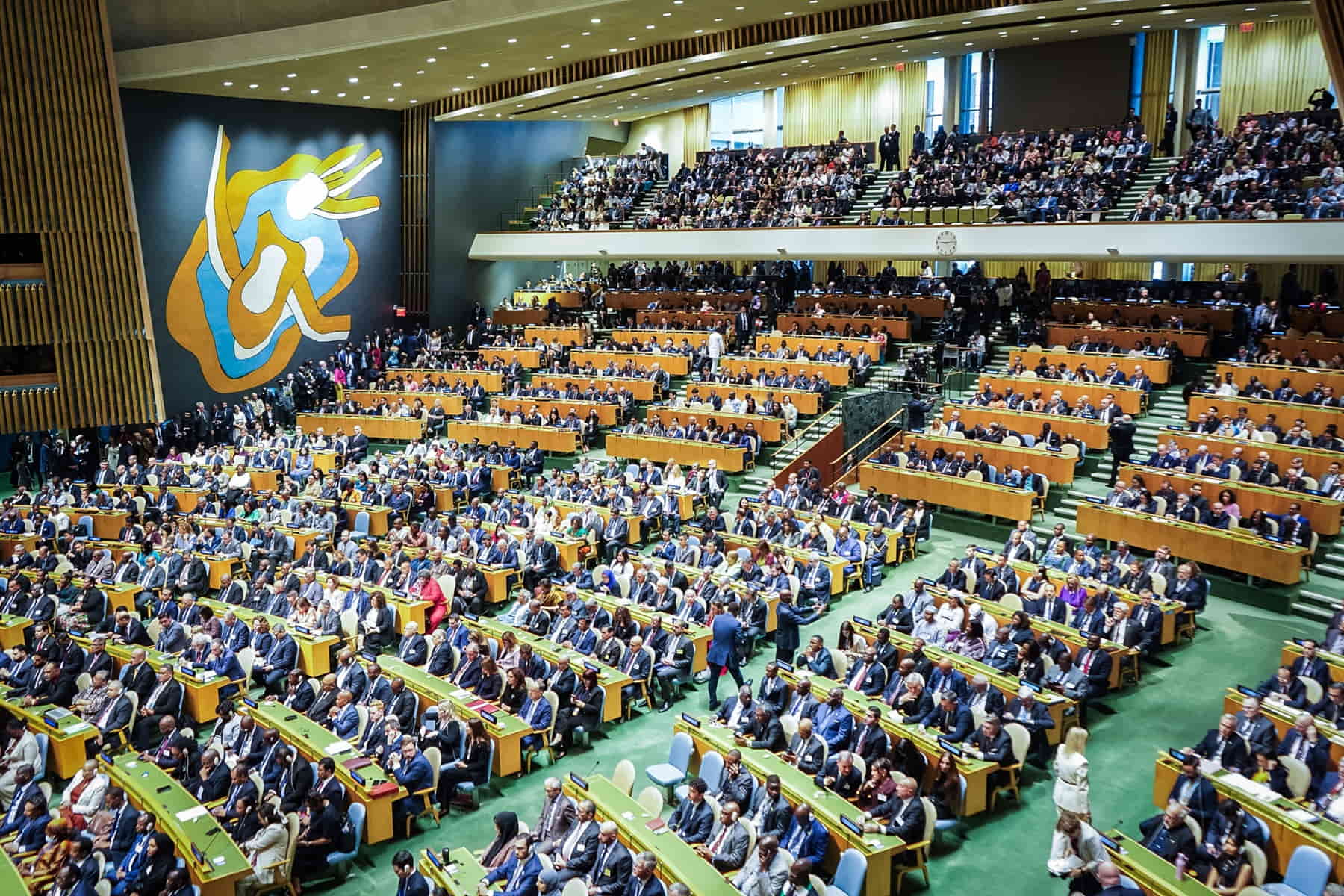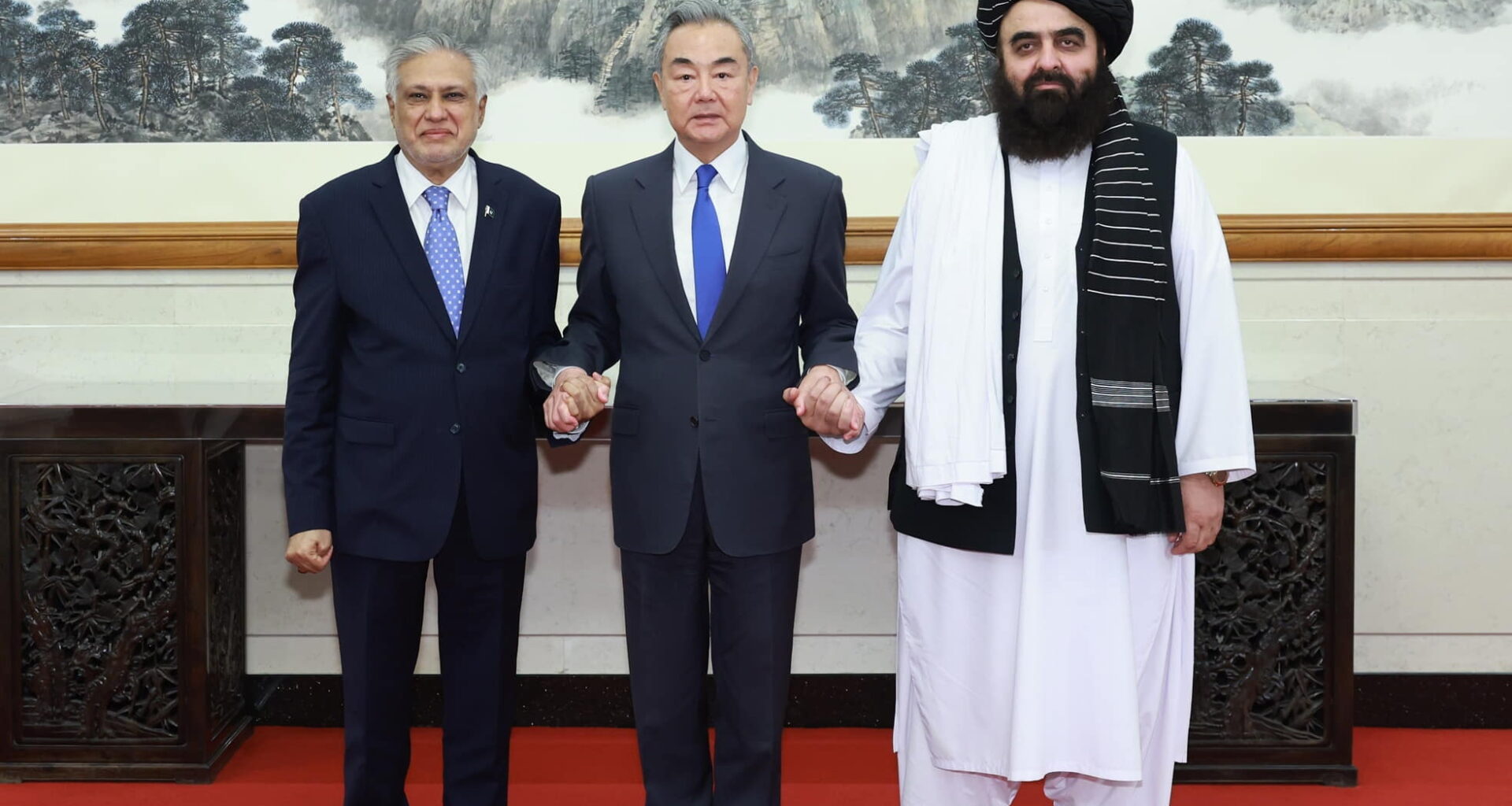Afghanistan’s exclusion from the United Nations General Assembly for a third consecutive year marks a deepening crisis in its international standing. While Taliban officials cite a lack of diplomatic recognition as the reason, the deeper roots of Afghanistan’s isolation lie in unresolved security challenges and the regime’s failure to convince the international community that it can govern effectively.
Despite repeated denials from the Taliban, intelligence assessments from both the United Nations and the United States confirm that al-Qaeda and allied militant groups remain entrenched in Afghanistan. Training camps, safe houses, and logistical networks have been maintained with tacit Taliban support, reviving fears that the country is once again becoming a safe haven for transnational militancy, renewing regional anxiety, particularly among Afghanistan’s neighbours.
The Taliban insist they have severed ties with extremist groups, but the evidence tells otherwise.
Recently, special envoys from Pakistan, China, Russia, and Iran met in Dushanbe to discuss avenues for pragmatic engagement with the Taliban. They focused on facilitating humanitarian relief and fostering regional stability, with envoys calling the discussions results-oriented and constructive. Nevertheless, Pakistan’s patience is wearing thin with increasing terrorist attacks on its territory.
Dangerous connections
The Taliban insist it has severed ties with extremist groups, but the evidence tells otherwise. Al-Qaeda’s longstanding links to the Taliban date back to the 1990s, while the Tehrik-e-Taliban Pakistan (TTP), a group closely related to the Afghan Taliban, continues to use Afghan soil to stage cross-border attacks.

Afghanistan has been excluded from the United Nations General Assembly for a third consecutive year (Richard Koek/MinBZ/Flickr)
For Pakistan, these ties are more than a diplomatic nuisance. Islamabad has repeatedly warned that TTP sanctuaries in Afghanistan destabilise its internal security, undermining years of counter-terrorism progress. With relations between the two neighbouring countries already strained, Pakistan’s Prime Minister Shehbaz Sharif has now sent a clear message to Afghanistan: choose between Pakistan and the TTP. This came after an increasing number of deadly clashes between Pakistan’s security forces and the TTP in northwest Pakistan.
Governance in freefall
Beneath the geopolitics lies a stark reality: the Taliban have failed to govern responsibly. Afghanistan’s economy has collapsed, corruption thrives, and the narcotics trade has morphed from opium into methamphetamine production with the UN Office on Drugs and Crime warning that Afghanistan is emerging as a global narcotics hub. The toxic mix of extremism, narcotics and rights abuses in Afghanistan is no longer just a regional concern; it is becoming a global crisis.
Pragmatic diplomacy
China has become an increasingly active player in Afghanistan, pressing the Taliban to step up counter-terrorism cooperation. Foreign Minister Wang Yi’s visit to Kabul in August pledged stronger economic and strategic support, while raising the prospect of joint patrols along the narrow Wakhan Corridor. Later, Kabul hosted a trilateral conference with China and Pakistan, where counter-terrorism shared space on the agenda with trade and economic integration. However, these diplomatic efforts apparently failed, with Beijing’s frustration rising over Kabul’s reluctance to take decisive actions against the terror groups originating from its soil.
While the West ties its engagement to progress on human rights and counter-terrorism, Russia and Central Asia have chosen pragmatism.
The United States, while no longer militarily present, is also recalibrating its role. The appointment of Don Brown as Chargé d’Affaires signals Washington’s intent to remain engaged through economic diplomacy and intelligence cooperation. Yet without a credible partner in Kabul, America’s over-the-horizon counter-terrorism strategy faces limits. Media reports indicate Washington has been quietly pushing to retake Bagram Air Base from the Taliban, citing several reasons including to surveil China, whose border is only 800 kilometres away, gain access to rare earth minerals, establish a counter-terrorism node to target ISIS, and possibly reopen a diplomatic facility.
While the West ties its engagement to progress on human rights and counter-terrorism, Russia and Central Asia have chosen pragmatism. Prioritising border stability and counter-narcotics, they are quietly engaging the Taliban despite past hostility. Kazakhstan’s push to integrate Afghanistan into Central Asia’s economy reflects this broader calculation.
The risks of denial
The Taliban’s denial of ties with al-Qaeda and the TTP may serve its short-term interest in seeking recognition and aid, but it fuels instability. Internal divisions within the movement also complicate matters, with some factions clinging to extremist networks while others push for global legitimacy. For now, denial masks these contradictions while allowing the extremist groups to exploit this ambiguity.
A narrow path
Afghanistan stands at a crossroads. Left unchecked, Taliban duplicity, militant ties, and governance failures could cement the country’s role as a hub of global insecurity. The consequences will not be confined to South Asia – they will ripple across Central Asia, China, Russia, and beyond.
Yet a different future is possible. But this requires definitive steps. It demands enhanced intelligence-sharing among stakeholders, conditional diplomatic engagement, and economic cooperation tied directly to counter-terrorism and human rights benchmarks.
The coming months will likely see heightened geopolitical competition: China and Russia pushing pragmatic engagement, the United States leveraging intelligence and economic tools, and regional states weighing the costs of containment versus cooperation. Without decisive Taliban reforms, however, Afghanistan may slip from a fragile state into a global security threat, forcing the world to act not out of diplomacy, but out of necessity.
A brighter future is still within reach. But unless action replaces rhetoric, Afghanistan risks repeating history – for itself, for the region, and for the world.

